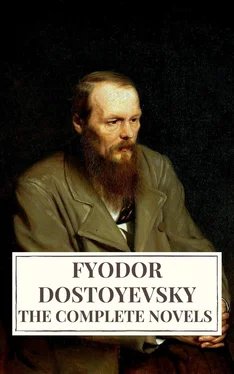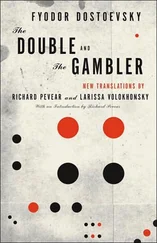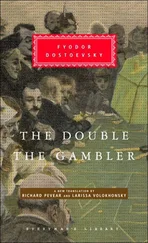Fyodor Dostoevsky - The Complete Novels of Fyodor Dostoyevsky
Здесь есть возможность читать онлайн «Fyodor Dostoevsky - The Complete Novels of Fyodor Dostoyevsky» — ознакомительный отрывок электронной книги совершенно бесплатно, а после прочтения отрывка купить полную версию. В некоторых случаях можно слушать аудио, скачать через торрент в формате fb2 и присутствует краткое содержание. Жанр: unrecognised, на английском языке. Описание произведения, (предисловие) а так же отзывы посетителей доступны на портале библиотеки ЛибКат.
- Название:The Complete Novels of Fyodor Dostoyevsky
- Автор:
- Жанр:
- Год:неизвестен
- ISBN:нет данных
- Рейтинг книги:5 / 5. Голосов: 1
-
Избранное:Добавить в избранное
- Отзывы:
-
Ваша оценка:
- 100
- 1
- 2
- 3
- 4
- 5
The Complete Novels of Fyodor Dostoyevsky: краткое содержание, описание и аннотация
Предлагаем к чтению аннотацию, описание, краткое содержание или предисловие (зависит от того, что написал сам автор книги «The Complete Novels of Fyodor Dostoyevsky»). Если вы не нашли необходимую информацию о книге — напишите в комментариях, мы постараемся отыскать её.
Poor Folk
The Double
Notes From The Underground
Crime and Punishment
The Gambler
The Idiot
The Possessed (The Devils)
A Raw Youth
The Dream of a Ridiculous Man
The Brothers Karamazov
The Complete Novels of Fyodor Dostoyevsky — читать онлайн ознакомительный отрывок
Ниже представлен текст книги, разбитый по страницам. Система сохранения места последней прочитанной страницы, позволяет с удобством читать онлайн бесплатно книгу «The Complete Novels of Fyodor Dostoyevsky», без необходимости каждый раз заново искать на чём Вы остановились. Поставьте закладку, и сможете в любой момент перейти на страницу, на которой закончили чтение.
Интервал:
Закладка:
How difficult I found it to grow accustomed to my new life! At the time of our removal to St. Petersburg it was autumn—a season when, in the country, the weather is clear and keen and bright, all agricultural labour has come to an end, the great sheaves of corn are safely garnered in the byre, and the birds are flying hither and thither in clamorous flocks. Yes, at that season the country is joyous and fair, but here in St. Petersburg, at the time when we reached the city, we encountered nothing but rain, bitter autumn frosts, dull skies, ugliness, and crowds of strangers who looked hostile, discontented, and disposed to take offence. However, we managed to settle down—though I remember that in our new home there was much noise and confusion as we set the establishment in order. After this my father was seldom at home, and my mother had few spare moments; wherefore, I found myself forgotten.
The first morning after our arrival, when I awoke from sleep, how sad I felt! I could see that our windows looked out upon a drab space of wall, and that the street below was littered with filth. Passers-by were few, and as they walked they kept muffling themselves up against the cold.
Then there ensued days when dullness and depression reigned supreme. Scarcely a relative or an acquaintance did we possess in St. Petersburg, and even Anna Thedorovna and my father had come to loggerheads with one another, owing to the fact that he owed her money. In fact, our only visitors were business callers, and as a rule these came but to wrangle, to argue, and to raise a disturbance. Such visits would make my father look very discontented, and seem out of temper. For hours and hours he would pace the room with a frown on his face and a brooding silence on his lips. Even my mother did not dare address him at these times, while, for my own part, I used to sit reading quietly and humbly in a corner—not venturing to make a movement of any sort.
Three months after our arrival in St. Petersburg I was sent to a boarding-school. Here I found myself thrown among strange people; here everything was grim and uninviting, with teachers continually shouting at me, and my fellow-pupils for ever holding me up to derision, and myself constantly feeling awkward and uncouth. How strict, how exacting was the system! Appointed hours for everything, a common table, ever-insistent teachers! These things simply worried and tortured me. Never from the first could I sleep, but used to weep many a chill, weary night away. In the evenings everyone would have to repeat or to learn her lessons. As I crouched over a dialogue or a vocabulary, without daring even to stir, how my thoughts would turn to the chimney-corner at home, to my father, to my mother, to my old nurse, to the tales which the latter had been used to tell! How sad it all was! The memory of the merest trifle at home would please me, and I would think and think how nice things used to be at home. Once more I would be sitting in our little parlour at tea with my parents—in the familiar little parlour where everything was snug and warm! How ardently, how convulsively I would seem to be embracing my mother! Thus I would ponder, until at length tears of sorrow would softly gush forth and choke my bosom, and drive the lessons out of my head. For I never could master the tasks of the morrow; no matter how much my mistress and fellow-pupils might gird at me, no matter how much I might repeat my lessons over and over to myself, knowledge never came with the morning. Consequently, I used to be ordered the kneeling punishment, and given only one meal in the day. How dull and dispirited I used to feel! From the first my fellow-pupils used to tease and deride and mock me whenever I was saying my lessons. Also, they used to pinch me as we were on our way to dinner or tea, and to make groundless complaints of me to the head mistress. On the other hand, how heavenly it seemed when, on Saturday evening, my old nurse arrived to fetch me! How I would embrace the old woman in transports of joy! After dressing me, and wrapping me up, she would find that she could scarcely keep pace with me on the way home, so full was I of chatter and tales about one thing and another. Then, when I had arrived home merry and lighthearted, how fervently I would embrace my parents, as though I had not seen them for ten years. Such a fussing would there be—such a talking and a telling of tales! To everyone I would run with a greeting, and laugh, and giggle, and scamper about, and skip for very joy. True, my father and I used to have grave conversations about lessons and teachers and the French language and grammar; yet we were all very happy and contented together. Even now it thrills me to think of those moments. For my father's sake I tried hard to learn my lessons, for I could see that he was spending his last kopeck upon me, and himself subsisting God knows how. Every day he grew more morose and discontented and irritable; every day his character kept changing for the worse. He had suffered an influx of debts, nor were his business affairs prospering. As for my mother, she was afraid even to say a word, or to weep aloud, for fear of still further angering him. Gradually she sickened, grew thinner and thinner, and became taken with a painful cough. Whenever I reached home from school I would find every one low-spirited, and my mother shedding silent tears, and my father raging. Bickering and high words would arise, during which my father was wont to declare that, though he no longer derived the smallest pleasure or relaxation from life, and had spent his last coin upon my education, I had not yet mastered the French language. In short, everything began to go wrong, to turn to unhappiness; and for that circumstance, my father took vengeance upon myself and my mother. How he could treat my poor mother so I cannot understand. It used to rend my heart to see her, so hollow were her cheeks becoming, so sunken her eyes, so hectic her face. But it was chiefly around myself that the disputes raged. Though beginning only with some trifle, they would soon go on to God knows what. Frequently, even I myself did not know to what they related. Anything and everything would enter into them, for my father would say that I was an utter dunce at the French language; that the head mistress of my school was a stupid, common sort of women who cared nothing for morals; that he (my father) had not yet succeeded in obtaining another post; that Lamonde's "Grammar" was a wretched book—even a worse one than Zapolski's; that a great deal of money had been squandered upon me; that it was clear that I was wasting my time in repeating dialogues and vocabularies; that I alone was at fault, and that I must answer for everything. Yet this did not arise from any WANT OF LOVE for me on the part of my father, but rather from the fact that he was incapable of putting himself in my own and my mother's place. It came of a defect of character.
All these cares and worries and disappointments tortured my poor father until he became moody and distrustful. Next he began to neglect his health. with the result that, catching a chill, he died, after a short illness, so suddenly and unexpectedly that for a few days we were almost beside ourselves with the shock — my mother, in particular, lying for a while in such a state of torpor that I had fears for her reason. The instant my father was dead creditors seemed to spring up out of the ground, and to assail us en masse. Everything that we possessed had to be surrendered to them, including a little house which my father had bought six months after our arrival in St. Petersburg. How matters were finally settled I do not know, but we found ourselves roofless, shelterless, and without a copper. My mother was grievously ill, and of means of subsistence we had none. Before us there loomed only ruin, sheer ruin. At the time I was fourteen years old. Soon afterwards Anna Thedorovna came to see us, saying that she was a lady of property and our relative; and this my mother confirmed—though, true, she added that Anna was only a very DISTANT relative. Anna had never taken the least notice of us during my father's lifetime, yet now she entered our presence with tears in her eyes, and an assurance that she meant to better our fortunes. Having condoled with us on our loss and destitute position, she added that my father had been to blame for everything, in that he had lived beyond his means, and taken upon himself more than he was able to perform. Also, she expressed a wish to draw closer to us, and to forget old scores; and when my mother explained that, for her own part, she harboured no resentment against Anna, the latter burst into tears, and, hurrying my mother away to church, then and there ordered Mass to be said for the "dear departed," as she called my father. In this manner she effected a solemn reconciliation with my mother.
Читать дальшеИнтервал:
Закладка:
Похожие книги на «The Complete Novels of Fyodor Dostoyevsky»
Представляем Вашему вниманию похожие книги на «The Complete Novels of Fyodor Dostoyevsky» списком для выбора. Мы отобрали схожую по названию и смыслу литературу в надежде предоставить читателям больше вариантов отыскать новые, интересные, ещё непрочитанные произведения.
Обсуждение, отзывы о книге «The Complete Novels of Fyodor Dostoyevsky» и просто собственные мнения читателей. Оставьте ваши комментарии, напишите, что Вы думаете о произведении, его смысле или главных героях. Укажите что конкретно понравилось, а что нет, и почему Вы так считаете.












